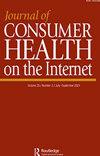Pediatric Cancer Information on the Internet: A Comparative Study of the Websites Quality in English and Spanish Languages
IF 0.7
Q4 PUBLIC, ENVIRONMENTAL & OCCUPATIONAL HEALTH
引用次数: 0
Abstract
Abstract The quality of the health information presented on the Internet is a public health problem, anyone can spread information even if it is false. One factor that influences the quality is the language in which it is presented. It is known that 85% of cancer patients search about their disease, and it influences the decisions they would take concerning their treatment. Spanish speakers are the second largest population after Mandarin Chinese, but the main scientific and medical information is published in English. The aim of this study was to compare the quality of pediatric cancer information on the Internet provided in English and Spanish languages. A Google chrome search was performed in both languages using the words “children cancer.” Three different validated tools to assess the quality of the information were used (JAMA benchmarks, DISCERN and HONcode). For all the tools used, the information in English was of better quality than Spanish information. We found a significant difference between the DISCERN and JAMA benchmark. Only 26.74% of the English and 3.57% of the Spanish websites fit all the DISCERN criteria and 25 % of the English and 13.39% of the Spanish websites fit the 4 JAMA criteria. The HONcode was no different between both languages. The health institutions should verify the health information presented on the Internet and issue recommendations which are the best sites to use.癌症儿童互联网信息:英文和西班牙文网站质量的比较研究
互联网上呈现的健康信息质量问题是一个公共卫生问题,任何人都可以传播信息,即使信息是虚假的。影响质量的一个因素是它所使用的语言。据了解,85%的癌症患者会搜索他们的疾病,这影响了他们对治疗的决定。说西班牙语的人是仅次于普通话的第二大人口,但主要的科学和医学信息是用英语发表的。本研究的目的是比较英语和西班牙语互联网上儿童癌症信息的质量。在两种语言中使用“儿童癌症”这个词进行了谷歌chrome搜索。使用了三种不同的有效工具来评估信息的质量(JAMA基准,DISCERN和HONcode)。在所有使用的工具中,英语信息的质量比西班牙语信息的质量好。我们发现在DISCERN和JAMA的基准之间存在显著差异。只有26.74%的英文网站和3.57%的西班牙语网站符合所有的DISCERN标准,25%的英文网站和13.39%的西班牙语网站符合4个JAMA标准。HONcode在两种语言之间没有区别。卫生机构应核实互联网上提供的卫生信息,并提出建议,选择最好的网站。
本文章由计算机程序翻译,如有差异,请以英文原文为准。
求助全文
约1分钟内获得全文
求助全文
来源期刊

Journal of Consumer Health on the Internet
PUBLIC, ENVIRONMENTAL & OCCUPATIONAL HEALTH-
CiteScore
1.30
自引率
12.50%
发文量
32
期刊介绍:
The Journal of Consumer Health on the Internet is the only professional peer-reviewed journal devoted to locating consumer health information via the Internet. In this journal librarians and health information providers describe programs and services aimed at helping patients and the general public find the health information they need. From the Editor: "Studies have shown that health information is one of the major reasons that people worldwide access the Internet. As the amount of health information on the Web increases exponentially, it becomes critical that librarians-including public and medical librarians-be knowledgeable about what is available online and be able to direct users to reliable, accurate, quality information."
 求助内容:
求助内容: 应助结果提醒方式:
应助结果提醒方式:


